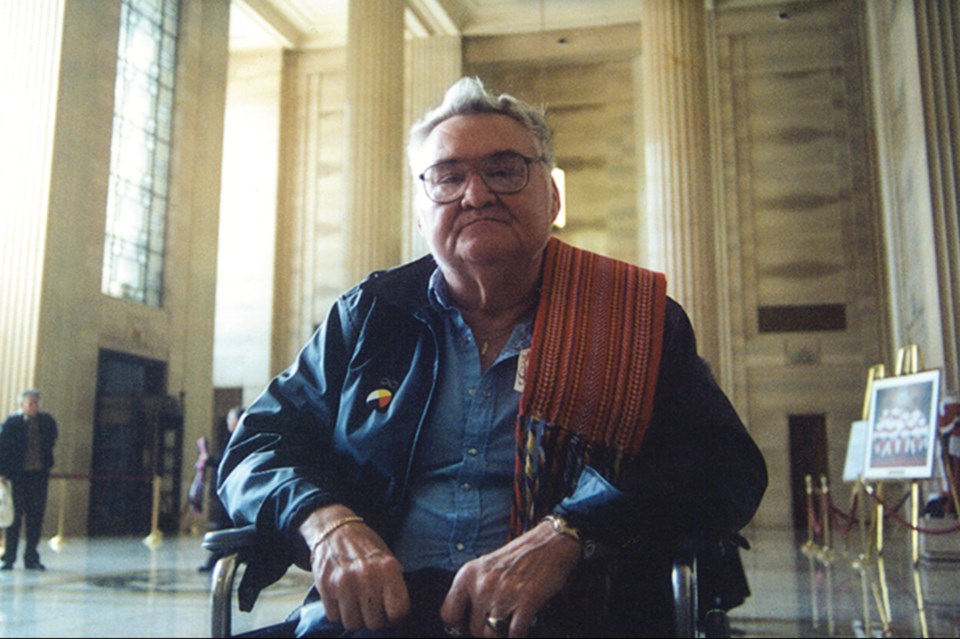Métis Nation of Ontario regional councillor Mitch Case was sitting in his mother’s kitchen, eating cake in celebration of his 13th birthday, when news broke on television that his peoples’ history had been recognized and affirmed by the Supreme Court of Canada.
This Sept. 19 marks the 20th anniversary of the landmark Powley court decision, which recognized the distinct existence of the Métis and protected their existing Aboriginal rights.
“That’s the part that people don’t realize — it wasn’t just, ‘do they have a right or not?’ The initial arguments were ‘they don’t have a right, because they don’t exist.’ That was what our government thought was appropriate use of time and resources at that point,” Case said.
The Métis Nation of Ontario used the charges against Steve Powley and son Roddy Powley as a test case for Métis rights after the pair killed a bull moose just outside Sault Ste Marie on October 22, 1993 without an Ontario hunting licence; instead, the father and son tagged their catch with a Métis card, along with a note that read “harvesting my meat for winter.”
Over the course of a decade-long legal battle, more than a dozen judges affirmed the existence of a rights-bearing historic Métis community in the Sault Ste. Marie region; the community also possesses a right to hunt that is protected by section 35 of the 1982 Constitution Act.
“Up until 2003, it was difficult — we always knew who we were, we always knew what our rights should be. But if you don’t have a willing partner on the other side, or someone who says you don’t exist, it’s hard to make anything of that,” said Case. “The Powley decision turned all of that around.”
A screening of a new documentary by award-winning Métis filmmaker Matt LeMay, titled The Hunt for Justice: The Powley Story, was held in Sault Ste. Marie over the weekend, bringing together members of the region’s Métis community — including members of the Powley family.
The documentary weaves together archival footage and interviews with the Powley family and those involved in the court process to tell the story of the legal battle and the impact of the 2003 Supreme Court of Canada decision, which created a legal framework for recognizing constitutionally protected Métis rights while setting the stage for Métis self-government.
Another screening of the documentary was held Monday for senators and members of parliament in Ottawa.
“There’s some really, really great content in there,” Case said.
As a self-described “Métis kid from Goulais River,” Case says the 20th anniversary of the Powley decision has caused him to reflect upon the legacy of Steve Powley and the Powley family in the Sault Ste. Marie region.
“He passed away just months after the decision, and the stress of that court case really, really affected him,” said Case. “I think about the effect on him, his family — the way his family, 20 years later, continued to serve as volunteers.
“They show up to everything, they help with everything, they lead our community. I just think about them and their leadership.”
The Historic Sault Ste Marie Métis Council is working towards the creation of a permanent exhibit at the Sault Métis Cultural Centre that will feature artifacts including Steve Powley’s hat, sash and hunting notebook. The original copy of the Powley decision and the hide from the first moose harvested by the Métis community after the 2003 ruling will also be displayed as part of the exhibit, which is expected to open sometime early in the new year.
A nearly $200,000 grant from the federal government through its Museum Assistance Program helped finance the documentary and exhibit.
The official premiere of The Hunt for Justice: The Powley Story will be broadcast live on the Métis Nation of Ontario YouTube channel today at 6 p.m.
